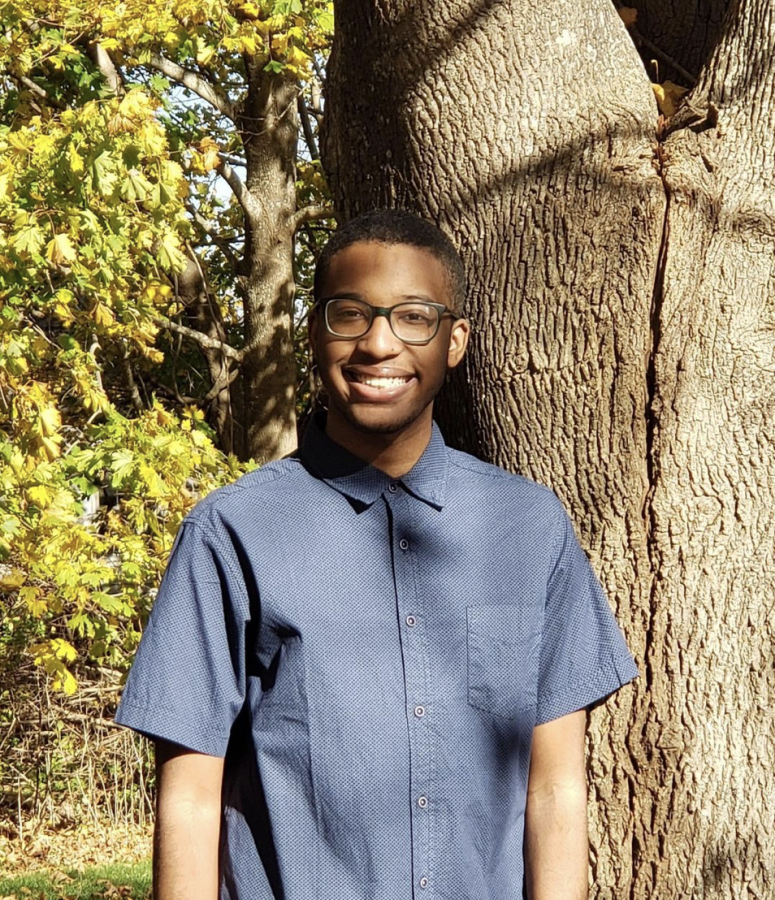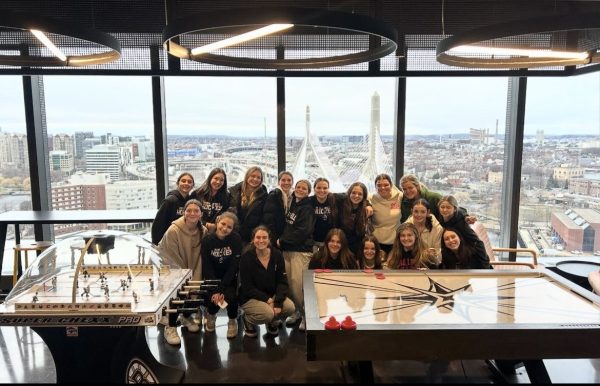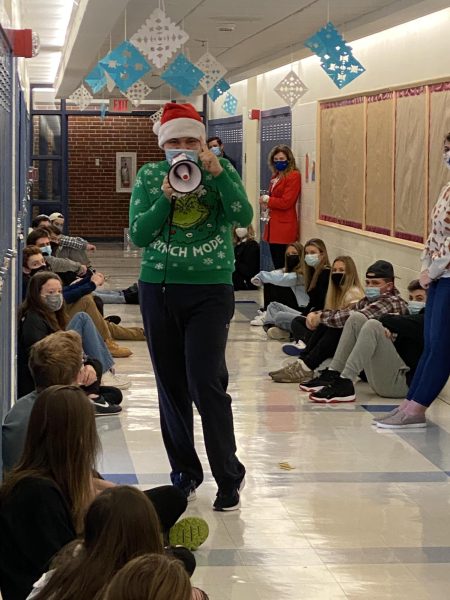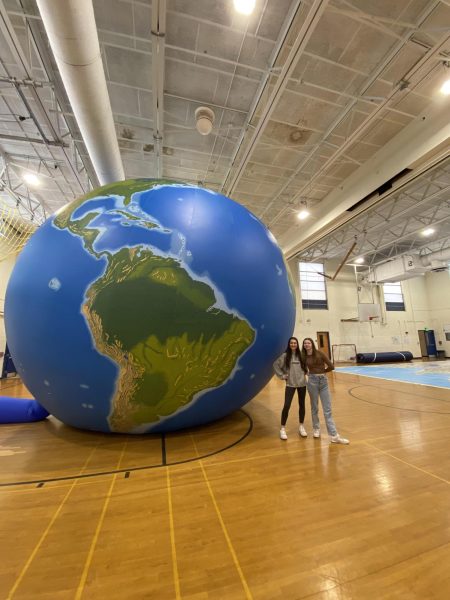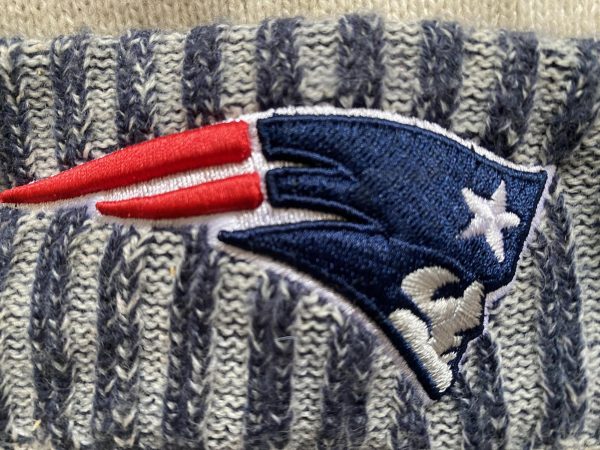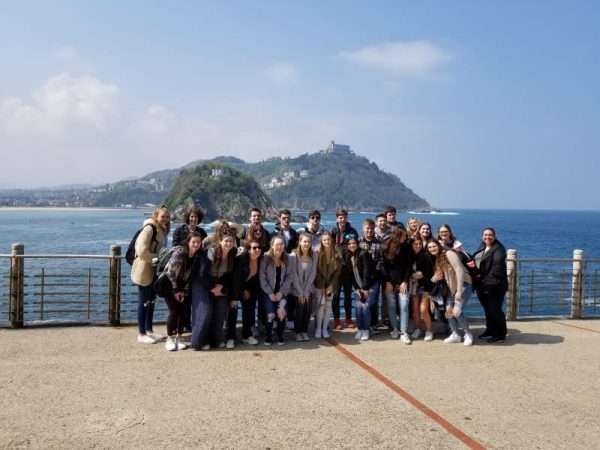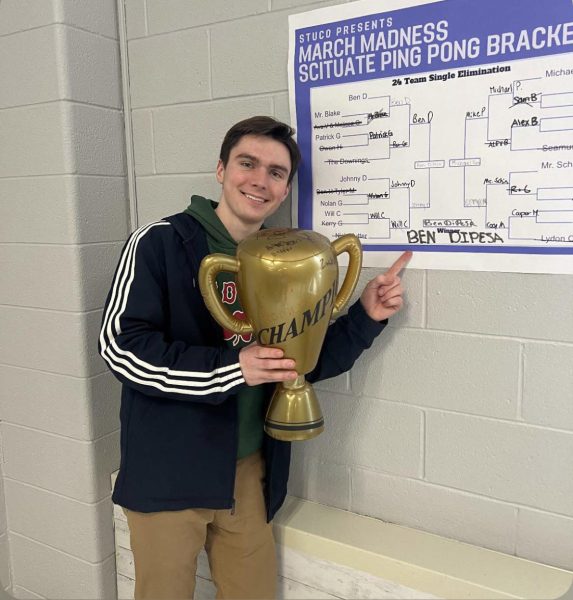Jamari Wilkerson Participates in A Beautiful Resistance
June 9, 2021
Asking an acclaimed Boston Globe journalist her opinions about Michelle Obama’s memoir, Becoming, or the pressures of remaining neutral during an era of raging self-expression is a task SHS senior Jamari Wilkerson never thought he would seek out–until the day he did.
Jamari has known this coastal town for most of his life. After moving to Scituate at a young age, he explored the intricacies of childhood and rudimentary academic pursuits alongside peers at Jenkins Elementary School. He graduated the sixth grade, and Gates sheltered him through the turbulence that is the notorious middle school experience. Now a senior in high school, Jamari may consider those days “so long ago,” but the memories stand vivid and untouched.
Like many high school students, Jamari has spent a lot of time trying to find himself in a homogeneous community. “There’s a lot of good and bad in this town,” he explains, “a lot of people who don’t understand.”
Perhaps on an identity quest, or perhaps on a whim, Jamari was drawn to a senior English selective, Literature of the Self, a class that would eventually take him out of his shell and into a space that honored both his aspirations and motivations.
“There was a piece that we read by Jenée Osterheldt,” Jamari remembers. The piece introduced his class to Ms. Osterheldt’s work as both a journalist for the Boston Globe and an outspoken advocate for change in the way Black people and People of Color can express themselves and their existence through culture and art. The locality of her work, combined with the impact she was able to have on countless hearts and minds, struck a chord with Jamari, and he decided that contacting her, despite the large chance she would not respond, was worth the potential failure. “At least I can try,” he remembers thinking, “The worst thing that could happen is her saying no.”
Long story short: she said yes, and a couple of months later Jamari found himself leading a Zoom discussion with Osterheldt and his class. “We spent a couple of days researching and rehearsing,” he details, “It was my first time facilitating anything, so I was pretty nervous.” However, according to Jamari, the discussion was a success, so much so that it lasted long after the bell had rung.
The group primarily discussed Osterheldt’s newest project, A Beautiful Resistance, which is a multi-media, multi-platform tribute to Black lives and the lives of People of Color in and around the Boston area. The project is inclusive, featuring artists, athletes, students, and people of all ages and genders trying to survive in a constantly changing community. During the discussion, Jamari explains, “She asked each kid about their own beautiful resistance,” which proved to be a moving question for every participant, and concluded a thoughtful and honest reflection on journalism and existence in the midst of transformative cultural shifts.
“This project shows that demonstrating history and culture can help people become open-minded,” Jamari determines, a statement that encapsulates the intentions of Osterheldt in the creation of this project. In an interview with NPR, Osterheldt expands: “There are very few Black journalists of color in newsrooms telling stories, and when you start to look at the coverage, you very soon realize coverage of Black and brown people suffer is often crime, sports, celebrity, or murder.” The effects of these trends can be incredibly significant, as Osterheldt eloquently explains: “Because we’ve had so little control over our narrative and over our imaging, the narrative has become brutality, it’s become crime, it’s become violence, it’s become suffering. And that strips us of power and agency.”
Osterheldt’s words are powerful, and ring true in big cities and small towns alike. It is perhaps this wide range of applicability that led Osterheldt to email Jamari several days after the discussion, asking Jamari if he would like to be featured in A Beautiful Resistance. Jamari, delighted to be included in a project that, according to him, is able to “show a culture that is not very known in this community,” responded affirmatively. “It was a Friday,” he describes, “and I just sat down and wrote for a while.”
What that writing session produced was a reflective, eye-opening Instagram post, published on A Beautiful Resistance’s account, highlighting Jamari, along with many others who have been publicized via Osterheldt’s platform. In the caption, which stands below Jamari’s senior photo, Jamari writes, “My life is a beautiful resistance because I make the effort to thrive despite living in a community with racism.” He goes on to describe his experiences encountering racism in Scituate, and the ways in which he has used teachers, friends, and the community to build a future for himself.
At the moment, Jamari is focused on preparing for college, for a future in being able to “engineer things for others that improve their lives, a spark of hope and joy when they least expect it.” After his caption, the commentary reads: “Jamari is joy, Jamari is light, Jamari is the future. A Massachusetts high school student, Jamari is a beautiful resistance.”
